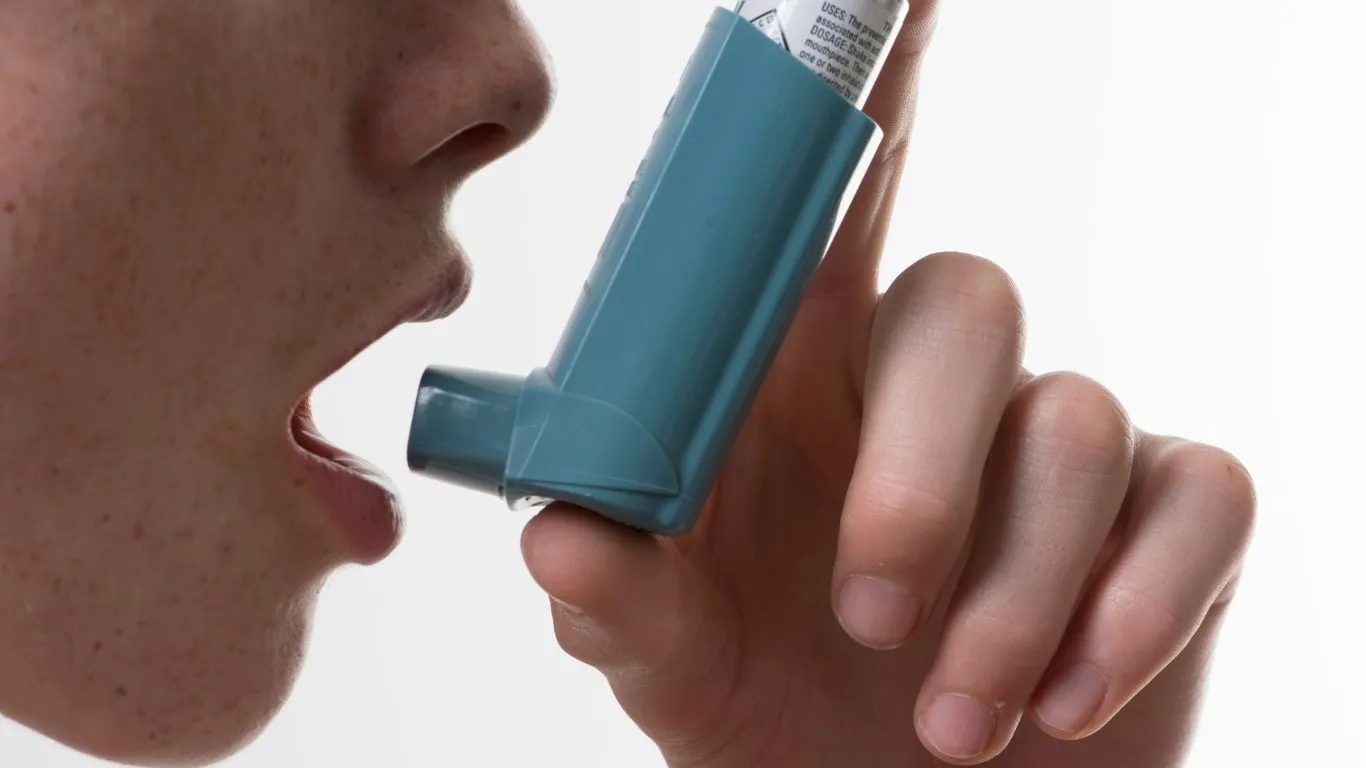Identifying Asthma Attack Triggers – A Simple Guide
If you or someone you love has asthma, you know that avoiding asthma attacks is key to managing the condition. But here’s the thing—sometimes, figuring out exactly what causes those attacks can feel like trying to solve a mystery. In this guide, we’ll walk through how to identify asthma triggers, so you can avoid them and stay on top of your health.
Why Identifying Triggers is So Important
Living with asthma can be a bit of a balancing act. You’ve got to keep your airways clear while also being mindful of things that might spark an asthma attack. Asthma triggers are all around us, but they affect everyone differently. What sets off one person’s asthma may not have the same effect on another person. This is why knowing your triggers is super important—it can help you prevent flare-ups before they happen. 
Common Asthma Attack Triggers
There are a bunch of common asthma triggers out there, so let’s break them down. Once you know what they are, you can start taking steps to avoid them and keep things under control.
1. Allergens (Dust, Pollen, Pet Dander)
For many people with asthma, allergies are a huge trigger. Things like dust mites, pollen, and pet dander can all make asthma symptoms worse. If you notice that your asthma acts up more during allergy season, it might be these allergens causing the issue. You can try keeping windows closed when pollen levels are high or using air purifiers in your home. 
2. Cold Air and Weather Changes
If you’ve ever felt your chest tighten when stepping outside on a chilly morning, you’re not alone. Cold air can be a major asthma trigger. Sudden changes in temperature, like going from a warm room to cold outdoors, can also make breathing harder. In colder months, consider wearing a scarf over your nose and mouth to help warm the air you breathe in.
3. Exercise and Physical Activity
Yep, even working out can sometimes bring on an asthma attack, especially if you’re doing intense physical activities. Exercise-induced asthma is a real thing, and it can be triggered by exertion. If exercise is a trigger for you, try warming up properly and using your inhaler as prescribed before starting your workout.
4. Smoke (Cigarette, Fireplace, or Wood Smoke)
You might’ve heard that smoking is a big no-no for people with asthma—and for good reason. Smoke, whether from cigarettes, wood fires, or even secondhand smoke, can irritate your lungs and airways. If you’re in an environment where smoke is present, it’s best to leave or avoid it altogether.
5. Strong Scents and Chemicals (Perfumes, Cleaning Products)
Some people with asthma are really sensitive to strong smells or chemicals. Things like perfumes, cleaning products, or even freshly painted walls can set off an attack. If you’re sensitive to scents, try to avoid areas with strong odors, and choose unscented or natural cleaning products. 
6. Viral Infections (Like Colds and Flu)
Infections, especially respiratory ones like colds or the flu, can make asthma worse. When you’re sick, your airways become more inflamed and congested, which can trigger an asthma attack. Keep up with your asthma medications and try to stay away from people who are sick when possible.
How to Identify Your Personal Triggers
So, how do you figure out exactly what’s triggering your asthma attacks? It’s not always easy, but it’s totally possible. Here’s how to get started:
Keep a Symptom Diary
Start by tracking when your asthma symptoms flare up. Note things like:
- The time of day
- Weather conditions
- What you were doing (were you exercising, cleaning, etc.)
- What you were exposed to (dust, pets, smoke, etc.)
Over time, patterns will emerge, and you might be able to pinpoint your personal triggers.
Consult an Allergist or Asthma Specialist
If you’re having a hard time identifying your triggers on your own, it could be helpful to see an allergist or asthma specialist. They can do tests to figure out what allergens or irritants are affecting you and help develop a treatment plan tailored to your needs.
Consider Allergy Testing
For some people, getting an allergy test can really help in identifying specific allergens that are triggering their asthma. This can give you a clear idea of which substances you should avoid.
Preventing Asthma Attacks by Managing Triggers
Once you know what’s causing your asthma attacks, the next step is managing those triggers. Here are some easy tips to help you out:
Create an Asthma Action Plan
Work with your doctor to create an asthma action plan. This plan will outline how to handle your symptoms, what medications to take, and how to avoid your triggers. Having a clear plan in place will give you peace of mind and keep you on top of your asthma care.
Avoid Triggers Whenever Possible
It sounds simple, but the best way to avoid an asthma attack is to steer clear of things that set you off. Whether it’s staying indoors on high-pollen days or keeping pets out of your bedroom, avoiding triggers can make a big difference.
Use Your Medications as Directed
Staying on top of your medications is crucial in asthma management. Make sure you’re using your inhaler or any other prescribed medications exactly as your doctor has instructed. This can help reduce inflammation and keep your airways open.
Conclusion: Take Charge of Your Asthma
Identifying asthma attack triggers is one of the best things you can do to stay in control of your asthma. Once you figure out what’s making your symptoms worse, you can take steps to avoid those triggers and stay healthy. It’s all about being proactive and paying attention to your body. So keep track of your symptoms, consult with your doctor, and take charge of your asthma care! 
Appendices
Frequently Asked Questions
- What are some common indoor asthma triggers?
Dust mites, pet dander, mold, and strong household cleaning products are common indoor triggers. - Can exercise-induced asthma be prevented?
Yes, warming up properly, using a pre-exercise inhaler, and avoiding cold, dry air can help manage exercise-induced asthma. - How can I reduce my exposure to pollen?
Stay indoors on high pollen days, keep windows closed, and use air purifiers to reduce pollen levels indoors. - Is secondhand smoke dangerous for people with asthma?
Absolutely. Secondhand smoke can irritate your airways and trigger asthma attacks, so it’s best to avoid it. - Can stress cause asthma attacks?
Yes, stress can sometimes trigger asthma attacks due to the way it affects your breathing. Practicing relaxation techniques can help manage stress.
References
- American Lung Association. (2023). Asthma Triggers and How to Avoid Them. Read Article
- National Asthma Education and Prevention Program (NAEPP). (2024). Managing Asthma Triggers.

Bianca Nala is a compassionate Nurse Practitioner with a strong background in primary and respiratory care. As a health writer for Healthusias.com, she combines her clinical expertise with a talent for clear, relatable storytelling to help readers better understand their health. Bianca focuses on topics like asthma, COPD, chronic cough, and overall lung health, aiming to simplify complex medical topics without losing accuracy. Whether she’s treating patients or writing articles, Bianca is driven by a single goal: making quality healthcare knowledge accessible to everyone.








